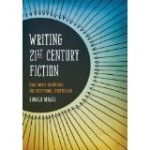Many of my writing students work in the fantasy genre. I like to joke that a fantasy is a novel with no modern conveniences and where everyone has an unpronounceable Welsh name.
Writing Tip for Today: Fantasy readers are loyal, so you’ll want your fantasy novel to be memorable. Three useful additions:
- Get to the Story. Fantasy readers turned writers often start out thinking the reader only wants to build the world with the author in those crucial first pages. YOU, the writer, MUST build your world completely. But your readers expect more. Readers crave a story, not a travelogue. Take a look at the last fantasy you read. Find the first bit of action. Chances are, it isn’t buried by pages of explanation. The Key: Get your characters on stage fast and then let them pull the reader into that world you so carefully imagined. If you hook your reader, they may not even require a map!
- A Strong Personality Beats a Weird Creature. Some may disagree, but I see a lot of mash-up type fantasies–stories with a character who’s part werewolf, part elf and part troll–you get the idea, that are too complicated to work. The reader must continually remember what part of this character does what. In trying to develop a different and original character, pay more attention to the character’s WANTS, NEEDS and EMOTIONS. I think a strong character with attitude will beat out some off-the-wall combo character where the reader has to remember all the different sides of the character. And while we’re at it, limit your number of characters to the absolute minimum you need. A crowded cast often results in reader confusion.
- Be Careful with Prologues. A lot of fantasy novels have prologues, mainly to set-up some ancient lost wisdom or the main challenge for the POV character. Problems with prologues arise when the prologue is too long (say more than 2-3 mss. pages) or when the prologue is an info dump for the setting and history of a forgotten race. Readers want to relate to a character on a journey. But they may never make it to Chapter One if the prologue puts them to sleep. Some famous writer said, “Prologues! Readers skip ’em!” I’m not sure that’s always true, but do be sure your prologue is necessary, active and short.





Thanks a lot with these great ideas.. I have now more knowledge on writing novels..
You’re welcome! Thanks for dropping by!
Keep writing,
Linda
Thanks for the tips, I am a newbie and can use all the help I can get!